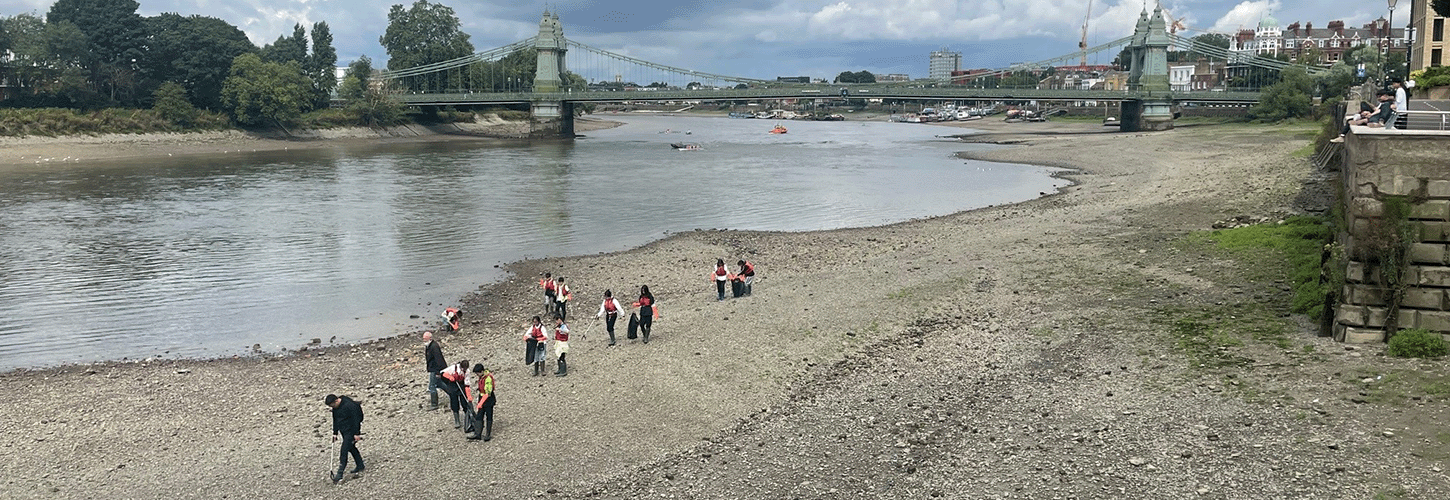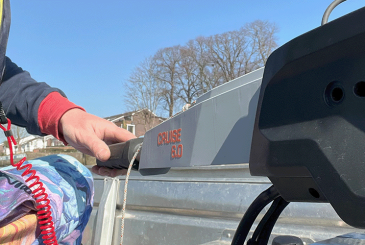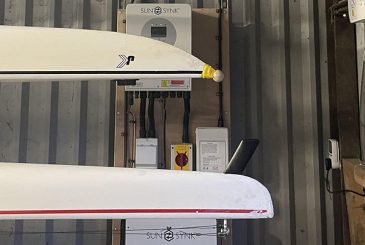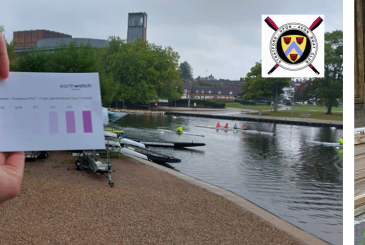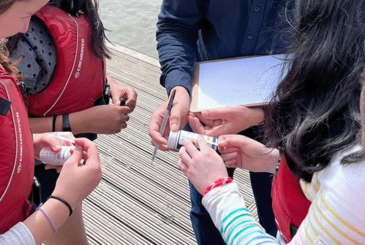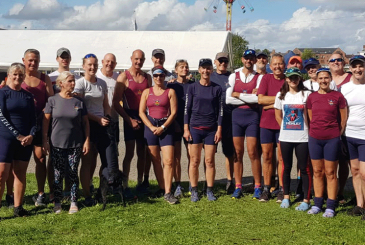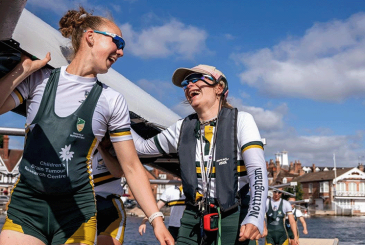Reducing plastic usage and recycling
Like many clubs, Poole ARC are seeking to avoid using plastic items only once – they have switched to compostable bin bags, and are careful not to stock any drinks that come in plastic at the club or regatta.
They also choose sustainable paper products like toilet rolls and paper towels, and make sure that everything that can be recycled makes it to the correct waste stream.
Isle of Ely RC members donated crockery and cutlery for the club to use at their head race and at the Great Ouse Marathon that they run, to replace single use items. They also bulk buy environmentally friendly cleaning products, hand soap and washing up liquid and refill smaller bottles when needed.
They have installed a bike rack to encourage members to cycle to the club, and sourced native shrubs from a local nursery as unusual but popular prizes at their competitions too.
The club’s top tip for others clubs interested in implementing similar initiatives is to involve members in the decision making and the reasons behind them.
Improving the environment around the boathouse
Students at York St John BC installed bird boxes, bat boxes and bug boxes around the boathouse. They also conducted a study to find out what wildlife there was in the area and were excited to discover otter paw prints in their experiment box!
They replaced a patch of ‘boring’ grass outside the boathouse with a wildflower garden, and found that lots of passers by would stop to admire and chat. “It’s something we’re really proud of,” explained then Vice-President Benji Hamilton-Rhys.
On the water
York St John make a point of stop mid-session to fish out bottles and rubbish from the river so they can take it home and dispose of it properly.
Thames Valley Skiff Club helps to keep the stretch of the Thames where they row between Walton and Weybridge looking spick and span after floods by collecting shreds of plastic bags caught in tree branches that are inaccessible from the bank. “Because our traditional boats don’t have out-riggers, we can manoeuver close enough to do this,” a member explains, adding, “It’s important to us that we don’t use a petrol outboard engine to do this work.”
As pictured at the top of this page, Tideway-based Fulham Reach BC host regular river clean-ups in partnership with the Port of London Authority (PLA) on the shore at low tides. They’ve found that disposable vapes are a growing litter problem. in January 2024, Fulham Reach won a grant from the PLA for their plan to engage participants in regular litter-picking sessions and use weekly water quality testing to educate people on river pollution and collect a reliable dataset.
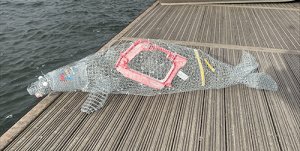
Fulham Reach is also working with Thames Seal Watch to foster community involvement in habitat restoration and animal rescue. Pulling together the litter pickup and seal projects, they’re in the process of making a lifesized seal sculpture out of rubbish collected from their foreshore to raise awareness of the 4,000 common and grey seals that live in the tidal Thames.
Invasive species
Invasive plant species – as well as are a risk to our waterways and, by extension to rowing. Boston RC, for instance, have had to move the date of 50k the Boston Rowing Marathon from its traditional place in September to April, because the river WItham is almost invariably made unrowable by weed growth after a long sunny summer.
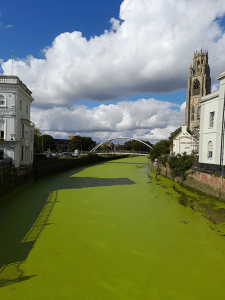
To help protect our sport, follow these three simple steps when leaving the water:
- Check – our equipment and clothing for live organisms
- Clean – and wash all equipment and clothing thoroughly
- Dry – all equipment and clothing, as some species can live for many days in moist conditions.
Floating Pennywort forms dense mats of rounded leaves which float across the water’s surface, depleting oxygen levels and light for photosynthesis, threatening fish and invertebrates, and outcompeting our native water plants.
Please let us know about your club’s environmental sustainability activities, however big or small!


